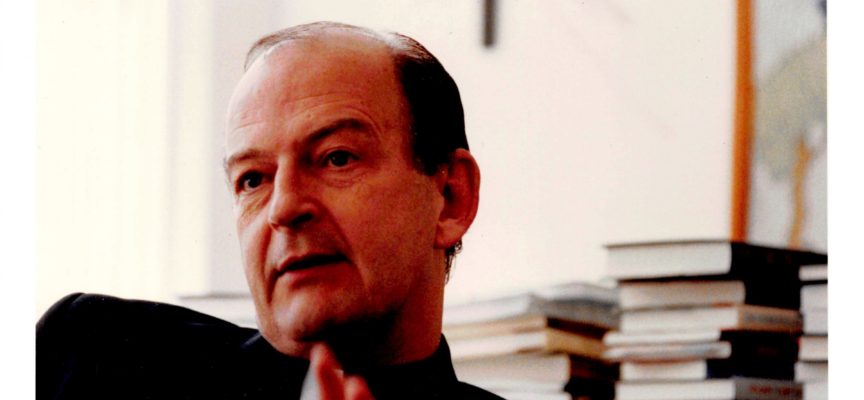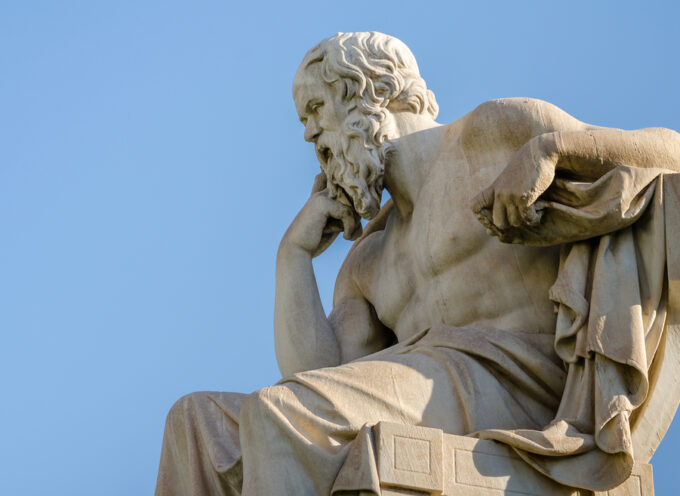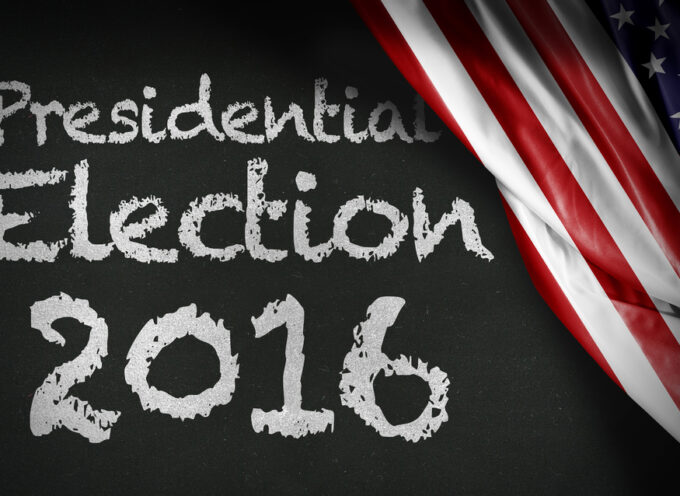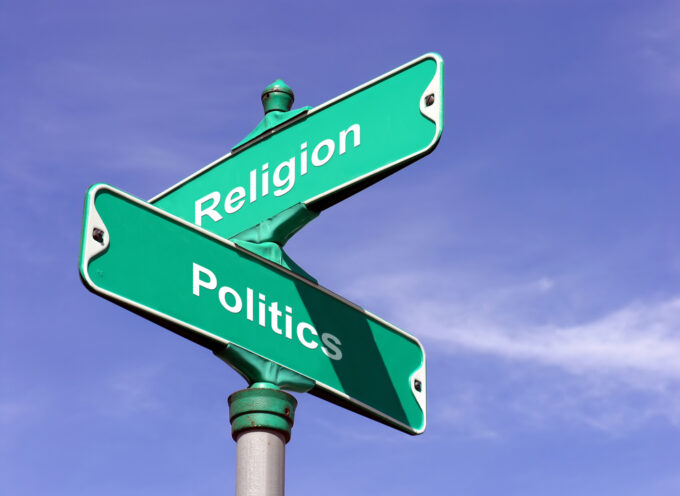In 1998, at the age of 24, I left the United States for the first time in order to become a university instructor in Kazan, Russia. Kazan is a breathtakingly beautiful city that is best known internationally for having been the home, for a short while, of both Lenin and Tolstoy. It is also a cultural crossroads, one of the most intriguing social and political environments in the former Soviet Union, being as it is composed of Tatar Muslims, Russian Orthodox Christians, and a good number of atheists.
During those years in Kazan, I found myself reflecting repeatedly on the question of how Christians should approach the public square, especially when it is crowded with people—such as Muslims and atheists—whose vision of the good life is different from ours. My questions about Christianity and the public square persisted and even intensified upon returning to the United States in the summer of 2000.
The public square is that metaphorical place where citizens speak, act, debate, dialogue, and exchange ideas about “the good life” especially in its social and political manifestations. Certain professions are inherently public-square-oriented, such as journalism, law, and politics. But all of us—no matter our profession—find ourselves involved in “public square” conversations and activities.
One powerfully influential answer to the “Christianity and the public square” question comes from an American political philosopher named John Rawls. Rawls argued that American citizens should make decisions about social and political matters from behind a “veil of ignorance.” We should pretend that we do not know our own religious commitments, race, or socio-economic status. Rawls argued for a “thin theory of the good.” He rejects any significant role for “thick” elements, such as religion, morality and philosophy.
So Rawls assumes that we can and should separate our public self from our private self. But Rawls’ solution bothered me. First and foremost, I knew that if Christ is Lord of all, then his Lordship must have some meaningful relationship to public life. Second, I knew the Christian tradition offered certain virtues and teachings that would positively influence my speech and actions in the public square. Third, I was pretty sure that Rawls had some (deeply religious) commitments of his own that he had not laid aside—such as his commitment to democratic liberalism.
But if Rawls’ view was wrong, what view was right? I sensed that certain other alternatives—such as withdrawing from the public square, on the one hand, or trying to install a theocracy, on the other hand—were misguided. During this time, I had my first encounter with Richard John Neuhaus via his classic book, The Naked Public Square.
My First Encounter with Neuhaus
In the The Naked Public Square, Neuhaus argued, against Rawls and others, that it is not possible to have a naked public square because people cannot really divest themselves of their most deeply held beliefs.” “The public square,” he wrote, “will not and cannot remain naked. If it is not clothed with the ‘meanings’ born by religion, new ‘meanings’ will be imposed by virtue of the ambitions of the modern state.” The real question is not whether to bring our religious beliefs into politics, but how to do so in a helpful rather than harmful manner.
Militant secularism, Neuhaus argued, is inadequate and unhelpful. He writes, “When religious transcendence is excluded, when the public square has been swept clean of divisive sectarianisms, the space is opened to seven demons aspiring to transcendent authority. As with a person so also with a society, the last condition is worse than the first.” Rawls’ secular liberalism, for example, is a “jealous god.” It establishes itself as a dogma, and allows no room for other dogmas.
So we cannot remove religious and moral influences; we cannot sever the public from the private. Instead of trying to do so, Neuhaus argued, we should allow our Christian beliefs to inform our views on social, cultural, and political issues. This does not mean that we should always articulate our views with explicitly Christian language. In fact, wisdom often dictates that we should not. The point is that our Christian beliefs should always shape the way we think about the common good, and will sometimes shape the way we speak publicly about the common good.
In fact, Christianity, by its very essence, safeguards public life. It provides the Christian a vantage point from which to critique the government. It keeps patriotism from becoming national chauvinism. It keeps us from expressing our deepest convictions in ways that are unloving or even mean-spirited. It guards against our being swayed in the wrong direction by charismatic political leaders.
A Second Encounter with Neuhaus
As influential as Neuhaus argued for public Christianity in The Naked Public Square, more influential was the way he practiced it in First Things, the magazine for which he was the founding editor-in-chief. The discovery of First Things magazine is one of the landmark events in my life. The subtitle of First Things is “A Continuing Survey of Religion and Public Life.” And that it was.
First Things featured essays on a wide variety of matters at the intersection of religion and public life. The essays and reviews were written by a broad coalition of Christian and Jewish authors, including federal judges, research scientists, theologians, and Ivy League professors. In addition to commenting on public life, First Things shaped public life by catalyzing nationwide debate about such issues as judicial usurpation, just war theory, and the propriety of public theology.
My favorite feature of First Things was “While We’re At It,” a catch-all column at the end of the magazine in which Neuhaus commented very briefly on a dozen items or so that had caught his attention that month. Through that column and the other pieces he wrote, I came to admire Neuhaus as a model public intellectual. Here was a man who had read widely and could argue persuasively on a broad array of issues. Few things seemed beyond his grasp—he spoke with wisdom and eloquence about virtually everything. He spoke easily, and with substance, about philosophy, art, science, politics, economics, and nearly anything else that is an issue of public life. He showed his readers how to reason from God’s word and how to reason scripturally from God’s world.
Of course, I cannot finish an article about Neuhaus without mentioning his wit. “While We’re At It” often served as his own venue for poking a little fun at those who poked fun at God or orthodox Christianity. His favorite targets, as I remember, were The New York Times, the abortion industry, the World Council of Churches, the Jesuits, the Episcopal Church, and radical leftists. In a given edition of “While We’re At It,” the opening line might be, “The New York Times is the most influential communications medium in the world. Poor world.” In another, it might be “Bishop John Shelby Spong is a religious phenomenon of our time and his retirement should not go unremarked. In person and in his writings, he is a man of breathtaking intellectual and spiritual vulgarity. His towering self-approval, clearly intended to intimidate, only astonishes.” In yet another, “One cannot help but be impressed by how, in these and other instances, Richard Rorty is so thoroughly mistaken in describing the world of which he is part.” Only a man born with a petrified diaphragm, to quote H. L. Mencken, could fail to laugh out loud.
A Biographical Encounter with Neuhaus
How did Neuhaus become the man that he was? The story is fascinating, and regretfully I can mention only in passing a few pieces of his story. He was born in Canada to the family of a Lutheran pastor. At 16 years old, he dropped out of high school to operate a gas station in Texas. Eventually, he earned his BA and MDiv from Concordia Seminary and went on to be ordained and appointed as the pastor of St. John the Evangelist Church in Brooklyn, a predominantly black and Hispanic congregation.
In the early 1970s, in his mid-life, Neuhaus had risen to be a prominent liberal public intellectual, poised to be the next Reinhold Niebuhr. He had a sharp wit, golden tongue, and prolific pen. He had major left-wing credibility, having marched arm-in-arm with MLK who was a personal friend. In the late 1960s he became famous for co-founding (together with Jesuit priest Daniel Berrigan and Rabbi Abraham Joshua Heschel) Clergy and Laymen Concerned About Vietnam. He was at the dead center of the “in” crowd in New York City, speaking to Congress, appearing on news shows, and publishing in his pick of journals and magazines.
The great turning point of his life was Roe v. Wade. When abortion was legalized, Neuhaus opposed it because he believed humans were created in the image of God and therefore possessed a certain dignity. Robert George writes about Neuhaus’ convictions concerning human dignity: “This dignity must be respected by all and protected by law. That, so far as Neuhaus was concerned, was not only a Biblical mandate but also the bedrock principle of the American constitutional order. Respect for the dignity of human beings meant, among other things, not subjecting them to a system of racial oppression; not wasting their lives in futile wars; not slaughtering them in the womb.”
His opposition to abortion catalyzed his metamorphosis from prominent liberal to prominent conservative, although he remained a registered Democrat. He became the scourge of the liberal establishment. He never stopped criticizing them concerning abortion, but also lost confidence in big government, as he believed that big government tends to foster long-term poverty even as it provides short-term assistance.
A Personal Encounter with Neuhaus
In 2004, I had the opportunity to meet with Neuhaus for several hours one day in his office in Manhattan, later had the opportunity to spend two days with him, and still later corresponded with him a few times. My sense of it—then and now—is that I was in the presence of greatness. Here was a man who had been powerfully influential in the life of our nation, who had walked arm-in-arm with MLK, provoked debate in Ivy League universities, and advised Presidents. Yet he was gracious and kind to a twenty-something boy who remains in his debt. As influential as The Public Square and First Things were, far more influential was his character and presence. Neuhaus passed from this earth on January 8, 2009.
Conclusion
I am grateful for my encounters with Richard John Neuhaus. From him, we can learn the value of reading widely and leveraging that knowledge in an appropriate manner in the public square. We can learn to build coalitions and communities that sustain and enhance our cultural engagement. We are reminded by Neuhaus to reject the misguided search for a naked public square. We remember, and learn from, his warm and gracious interaction with ordinary people. In short, Neuhaus’ life and writings remind us of the value of cultivating a public theology and of raising up public theologians who can speak and act in the public square for the common good.
[Note: An earlier version of this article first appeared in Canon & Culture magazine on Feb. 16, 2015.]
Subscribe
Never miss a post! Have all new posts delivered straight to your inbox.







